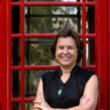To Rise Again at a Decent Hour: A Novel
(Libby/OverDrive eAudiobook)
Available Platforms
Description
More Details
Similar Titles From NoveList
Similar Authors From NoveList
Published Reviews
Booklist Review
Ferris returns with his third novel, another dark comedy in the vein of his well-received debut, Then We Came to the End (2007). Paul O'Rourke is a Manhattan dentist so disillusioned with the world that he doesn't even like it when his favorite baseball team wins the World Series. More than anything else, he dislikes religion, other people, and the modern technology that forces him to interact with other people. He calls cell phones me-machines and nicknames one of his patients Contacts for texting during a procedure. That's why he and his staff are shocked when a website for their practice suddenly appears online. Soon after, a Facebook page pops up, followed by a Twitter profile, all impersonating Paul. Infuriated, he tracks down his imposter and uncovers a fringe religious sect that worships Amalek, the father of a biblical tribe destroyed by King David in a holy war. As he tries to recover his stolen identity, Paul begins to question who he really is. The protagonist's sharp inner dialogues are laugh-out-loud hilarious, combining Woody Allen's New York nihilism with an Ivy League vocabulary. The narrative occasionally stumbles and spins out in the novel's latter third, but Ferris' unique voice shines.--Morgan, Adam Copyright 2014 Booklist
Publisher's Weekly Review
Paul O'Rourke, the main character of Ferris's (Then We Came to the End) new book, is a dentist. And he's a good one, informed and informative-even if the mouths that once seemed so erotic have devolved into caves of bacteria, pain, and lurking death. Ferris depicts Paul's difficulties: in the workplace, he struggles to say good morning, has problems with the office manager (who's also his ex-girlfriend), and likewise has problems with the devout Catholic hygienist, who can't see why he doesn't believe. A constant ruminator and obsessive Red Sox fan, Paul would like to believe and belong, but he can't. And then the Ulms, who claim to be followers of Amalek (a figure from the Old Testament), hijack his Internet presence and claims him as their own. As an angry and incredulous Paul reads "his" tweets, learns about the unlikely history of the Ulms, and tries to figure out what it all means, readers may find themselves questioning whether the drama of the Ulms amounts to much. Paul is an appealing-albeit self-involved-everyman, but Ferris's effort to take on big topics (existential doubt, grief, identity, the Internet, the lure and limits of religion, and the struggle to floss in the face of life's meaninglessness) feels more like a set of thought experiments than an organic or character-driven story. Agent: Julie Barer, Barer Literary. (May) (c) Copyright PWxyz, LLC. All rights reserved.
Booklist Reviews
Ferris returns with his third novel, another dark comedy in the vein of his well-received debut, Then We Came to the End (2007). Paul O'Rourke is a Manhattan dentist so disillusioned with the world that he doesn't even like it when his favorite baseball team wins the World Series. More than anything else, he dislikes religion, other people, and the modern technology that forces him to interact with other people. He calls cell phones "me-machines" and nicknames one of his patients "Contacts" for texting during a procedure. That's why he and his staff are shocked when a website for their practice suddenly appears online. Soon after, a Facebook page pops up, followed by a Twitter profile, all impersonating Paul. Infuriated, he tracks down his imposter and uncovers a fringe religious sect that worships Amalek, the father of a biblical tribe destroyed by King David in a holy war. As he tries to recover his stolen identity, Paul begins to question who he really is. The protagonist's sharp inner dialogues are laugh-out-loud hilarious, combining Woody Allen's New York nihilism with an Ivy League vocabulary. The narrative occasionally stumbles and spins out in the novel's latter third, but Ferris' unique voice shines. Copyright 2014 Booklist Reviews.
Library Journal Reviews
This third novel from National Book Award finalist Ferris features Paul O'Rourke, a bundle of nervous contradictions who's shocked when someone starts impersonating him online. Worse, the online Paul looks to be better than the real thing.
[Page 68]. (c) Copyright 2013. Library Journals LLC, a wholly owned subsidiary of Media Source, Inc. No redistribution permitted.Publishers Weekly Reviews
Paul O'Rourke, the main character of Ferris's (Then We Came to the End)new book, is a dentist. And he's a good one, informed and informative—even if the mouths that once seemed so erotic have devolved into caves of bacteria, pain, and lurking death. Ferris depicts Paul's difficulties: in the workplace, he struggles to say good morning, has problems with the office manager (who's also his ex-girlfriend), and likewise has problems with the devout Catholic hygienist, who can't see why he doesn't believe. A constant ruminator and obsessive Red Sox fan, Paul would like to believe and belong, but he can't. And then the Ulms, who claim to be followers of Amalek (a figure from the Old Testament), hijack his Internet presence and claims him as their own. As an angry and incredulous Paul reads "his" tweets, learns about the unlikely history of the Ulms, and tries to figure out what it all means, readers may find themselves questioning whether the drama of the Ulms amounts to much. Paul is an appealing—albeit self-involved—everyman, but Ferris's effort to take on big topics (existential doubt, grief, identity, the Internet, the lure and limits of religion, and the struggle to floss in the face of life's meaninglessness) feels more like a set of thought experiments than an organic or character-driven story. Agent: Julie Barer, Barer Literary. (May)
[Page ]. Copyright 2014 PWxyz LLCReviews from GoodReads
Citations
Scott, C., & Ferris, J. (2014). To Rise Again at a Decent Hour: A Novel (Unabridged). Hachette Audio.
Chicago / Turabian - Author Date Citation, 17th Edition (style guide)Scott, Campbell and Joshua Ferris. 2014. To Rise Again At a Decent Hour: A Novel. Hachette Audio.
Chicago / Turabian - Humanities (Notes and Bibliography) Citation, 17th Edition (style guide)Scott, Campbell and Joshua Ferris. To Rise Again At a Decent Hour: A Novel Hachette Audio, 2014.
Harvard Citation (style guide)Scott, C. and Ferris, J. (2014). To rise again at a decent hour: a novel. Unabridged Hachette Audio.
MLA Citation, 9th Edition (style guide)Scott, Campbell, and Joshua Ferris. To Rise Again At a Decent Hour: A Novel Unabridged, Hachette Audio, 2014.
Copy Details
| Collection | Owned | Available | Number of Holds |
|---|---|---|---|
| Libby | 1 | 1 | 0 |
































